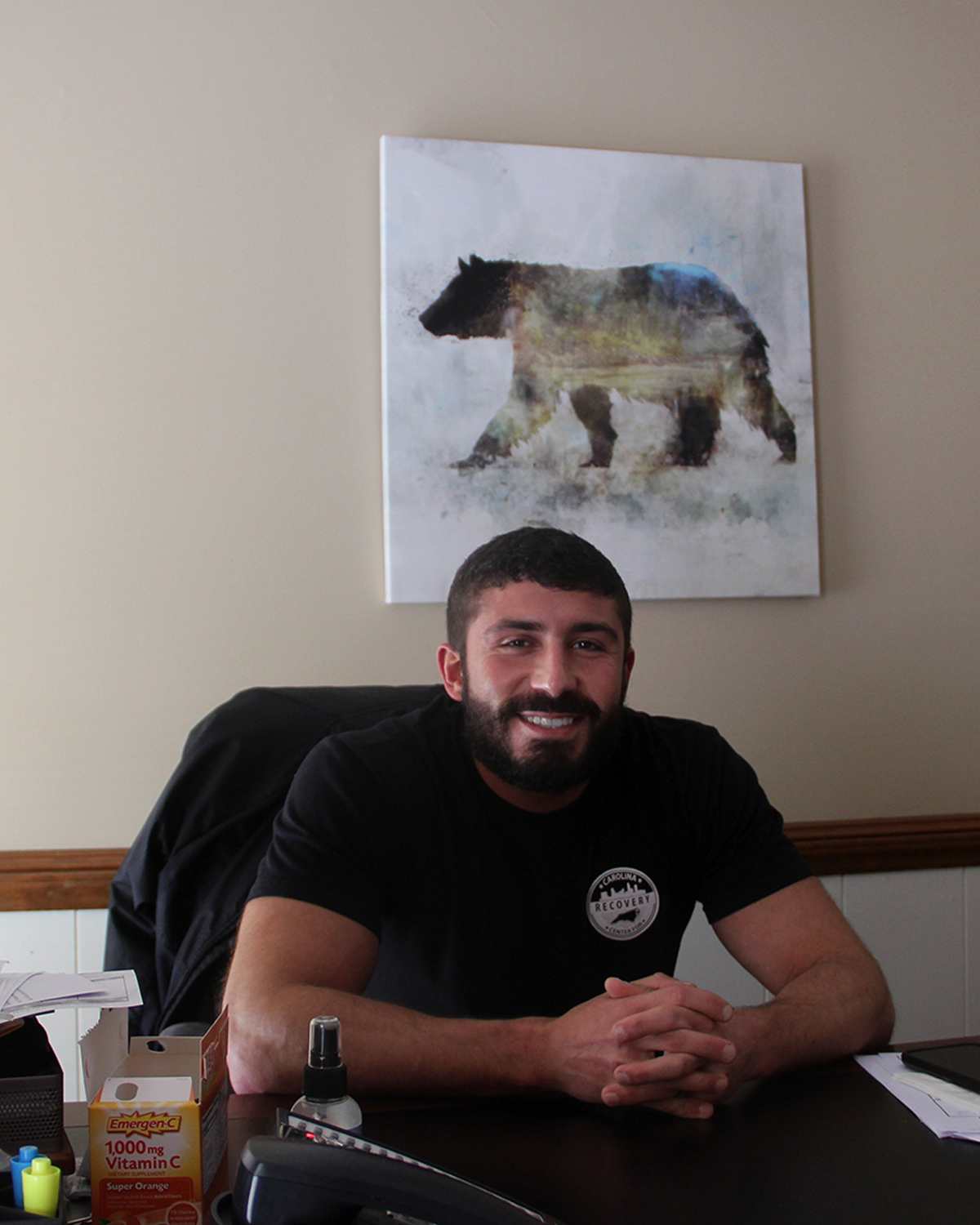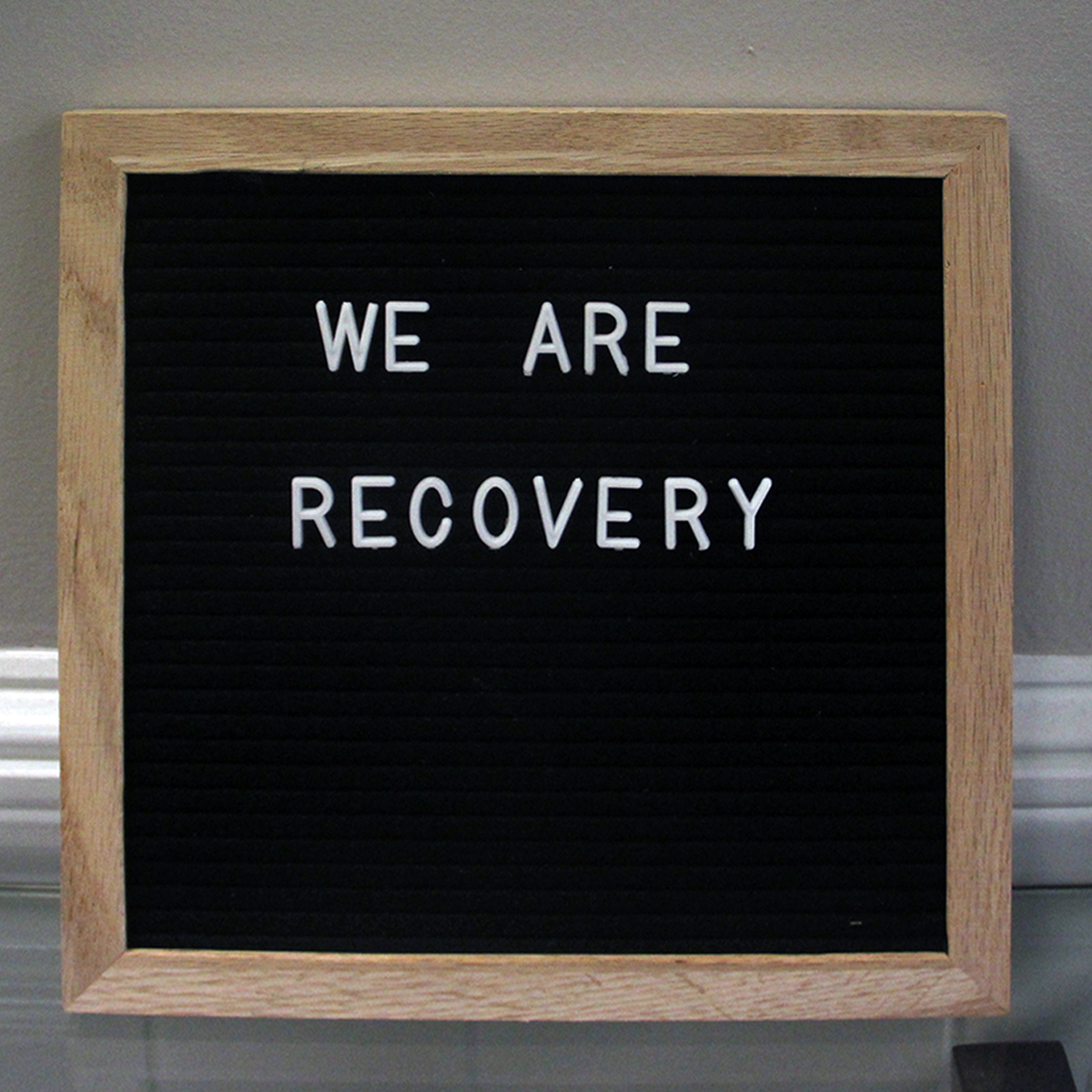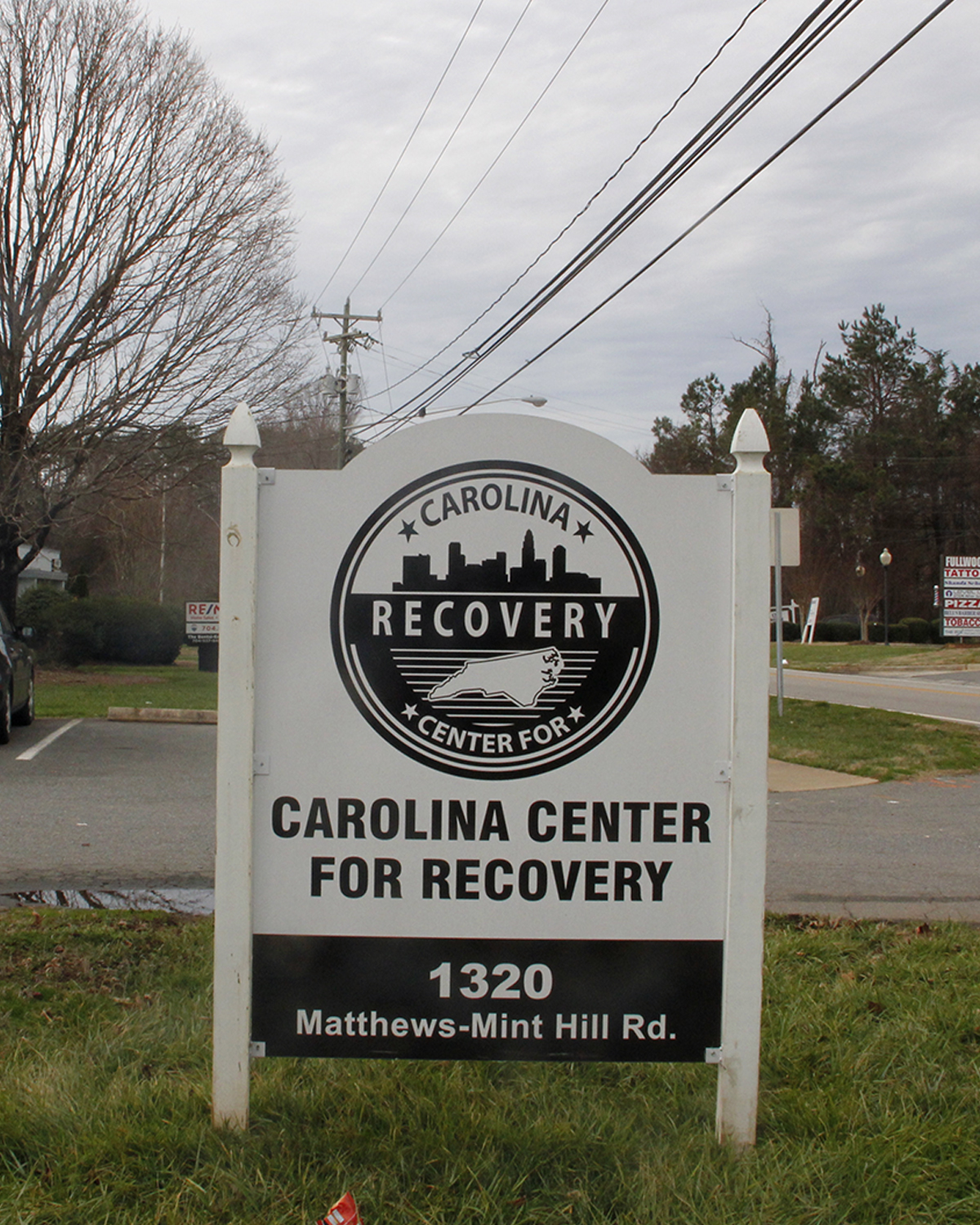Photo by Cyma Shapiro
In Room 103 at 1320 Matthews Mint Hill Road, at least one dozen men and women are discussing their feelings and emotions – everything from finding purpose and a place in life to self-love and emotional stability. This might be a support group for any number of possible ailments, vices or afflictions, however, the 12-step program on the wall provides a clue. This is the Carolina Center for Recovery and these participants are in substance abuse recovery.
On this day, leader, Jim, is using gentle humor with pointed observations and comments focusing on those individuals who appear to need the most support and guidance. It is a comfortable group clearly aware that there is safety and security in knowing that others are going through (and have gone through) similar struggles. However many other facets this institution might provide, the single most important goal is to help participants find sobriety and remain sober.
This is the lifeblood of co-owner, Matthews resident, Dion Lovallo, 28. Dion, along with three others (his father, his sponsor, and his best friend) opened this center just under a year ago. Recovery is a topic Dion knows well – having struggled with substance abuse, himself from the ages of 13 to 22, been in and out of treatment, and then hired as an admissions coordinator at his last treatment center.
Photo by Cyma Shapiro
“I found that this is something that I enjoyed,” he said. “It’s something I’m passionate about.” Among his 24/7 duties include handling emergencies, new admissions, and general problems either with staff or clients. He sees his program as “more family oriented – giving them a purpose.” Dion goes to the gym with the group, offers outside activities like barbecues and attends church with interested members. “Helping others helps me stay sober,” he says matter-of-factly.
At this moment, approximately two dozen people are enrolled in the Partial Hospitalization Program. Having been assigned a specific counselor, they attend several support groups/week and are encouraged to use the Brace Y to work out daily. “Something to get them out of their comfort zone,” says Dion. Prior to entering the program, at least 50% of the participants require detox.
Photo by Cyma Shapiro
“Everyone knows somebody who is struggling [with substances],” said Dion, mentioning the ongoing funerals he attends of those whose lives have ended tragically or far too soon.
To Dion, success is “somebody who stays sober.”
“Somebody gave me a chance,” he said. “I just like to give people a chance.” As a chance was given to him, it is also Dion’s future goal to hire some of his clients-in-recovery to assist him at the facility.
“Helping others helps me stay sober”



